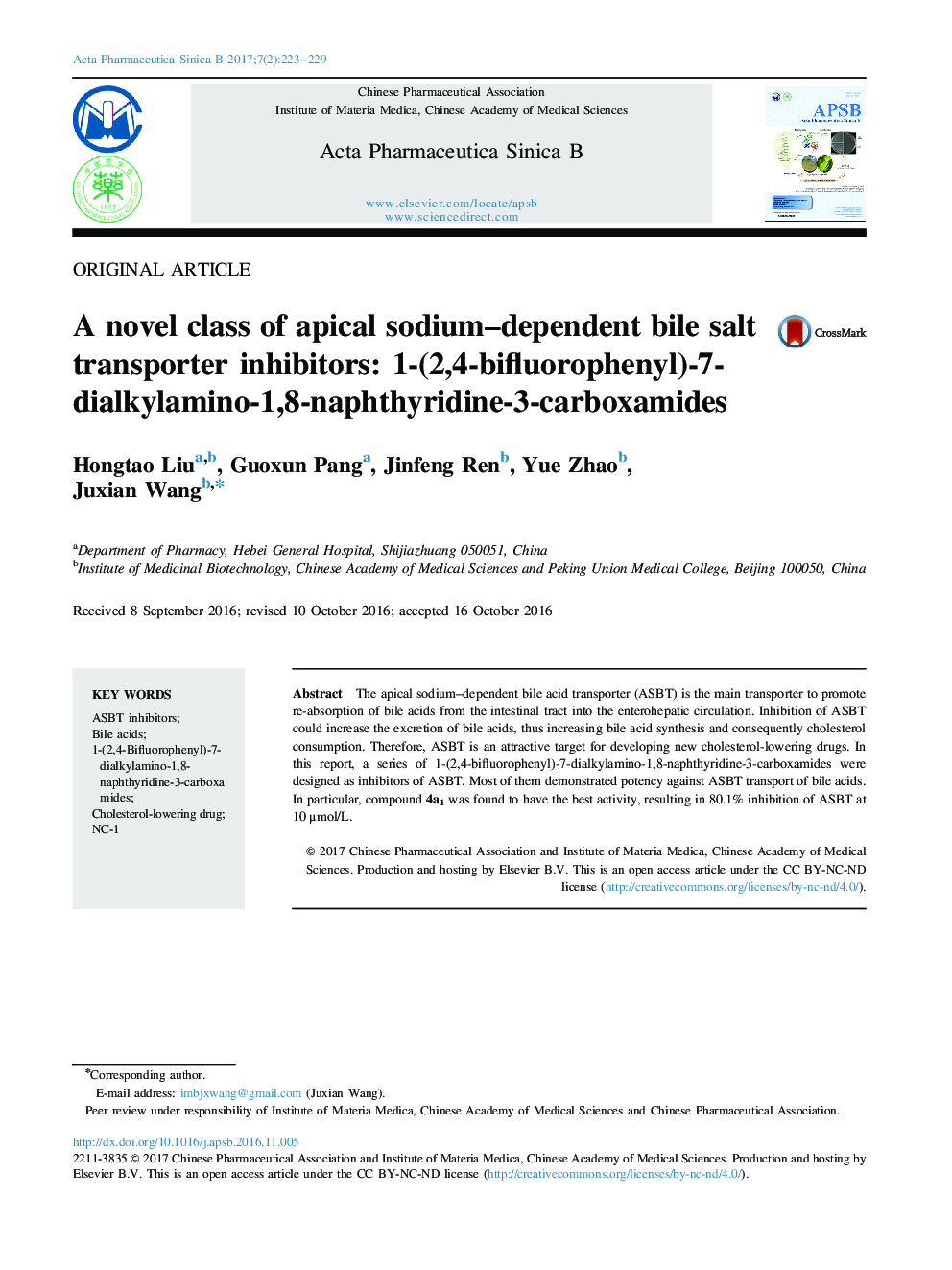| Article ID | Journal | Published Year | Pages | File Type |
|---|---|---|---|---|
| 5546620 | Acta Pharmaceutica Sinica B | 2017 | 7 Pages |
The apical sodium--dependent bile acid transporter (ASBT) is the main transporter to promote re-absorption of bile acids from the intestinal tract into the enterohepatic circulation. Inhibition of ASBT could increase the excretion of bile acids, thus increasing bile acid synthesis and consequently cholesterol consumption. Therefore, ASBT is an attractive target for developing new cholesterol-lowering drugs. In this report, a series of 1-(2,4-bifluorophenyl)-7-dialkylamino-1,8-naphthyridine-3-carboxamides were designed as inhibitors of ASBT. Most of them demonstrated potency against ASBT transport of bile acids. In particular, compound 4a1 was found to have the best activity, resulting in 80.1% inhibition of ASBT at 10 μmol/L.
Graphical abstractThe apical sodium--dependent bile acid transporter (ASBT) is the main transporter to promote re-absorption of bile acids from the intestinal tract into the enterohepatic circulation. Inhibition of ASBT could increase the excretion of bile acids, thus increasing bile acid synthesis and consequently cholesterol consumption. Therefore, ASBT is an attractive target for developing new cholesterol-lowering drugs. A series of novel 1-(2,4-bifluorophenyl)-7-dialkylamino-1,8-naphthyridine-3-carboxamides were designed, synthesized and the inhibitory activities for ASBT were assessed.Download high-res image (120KB)Download full-size image
